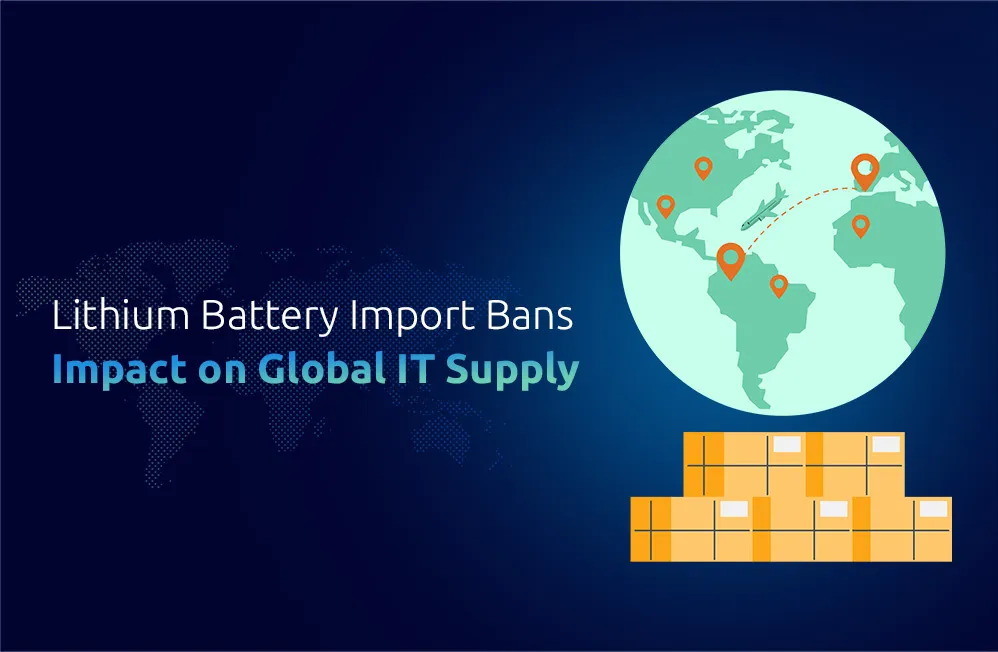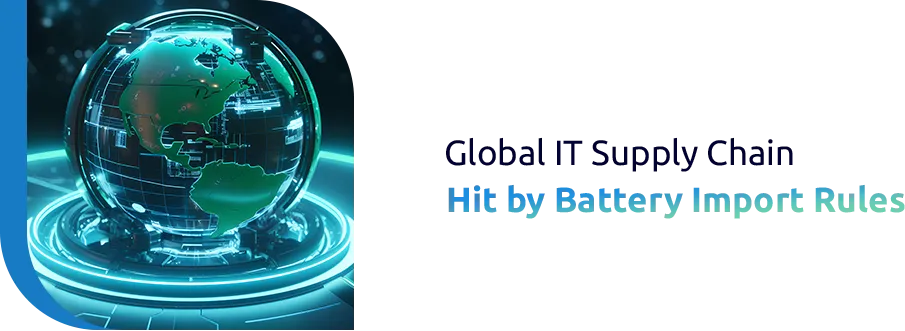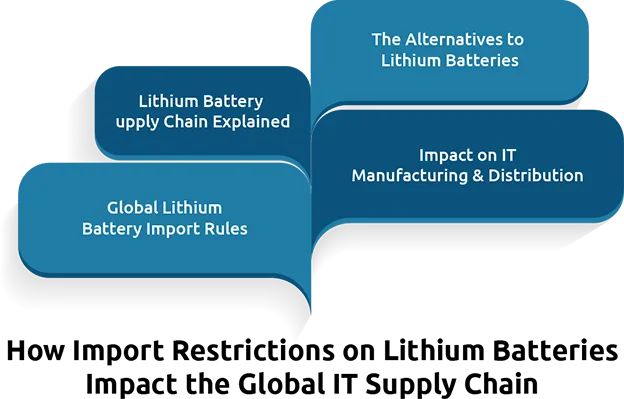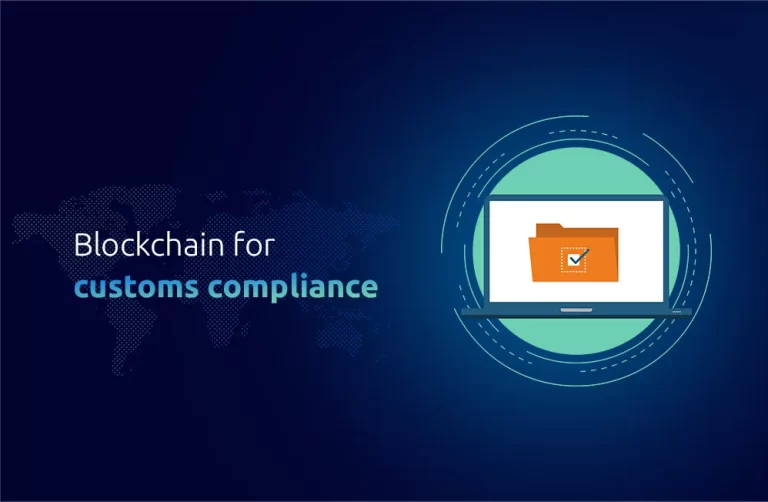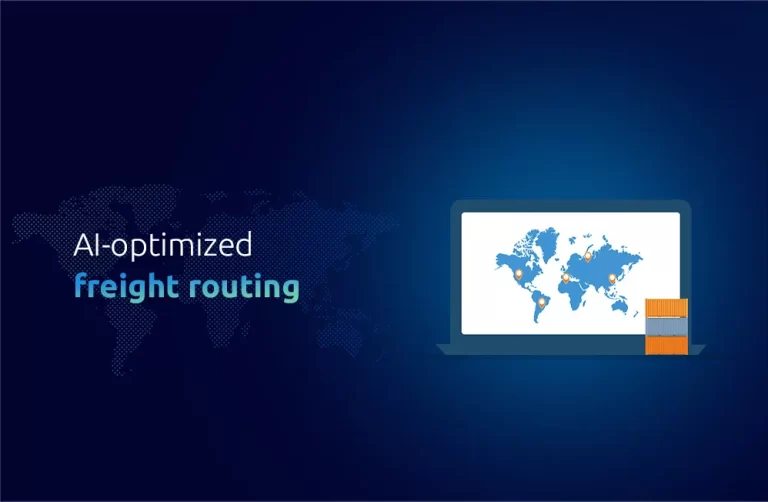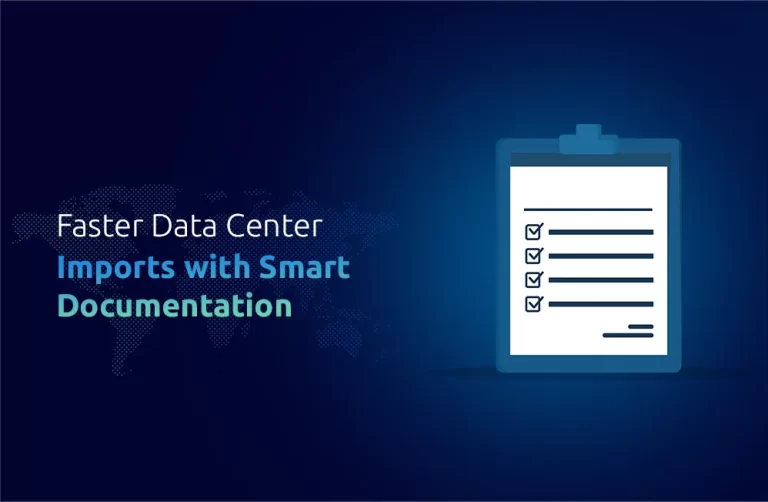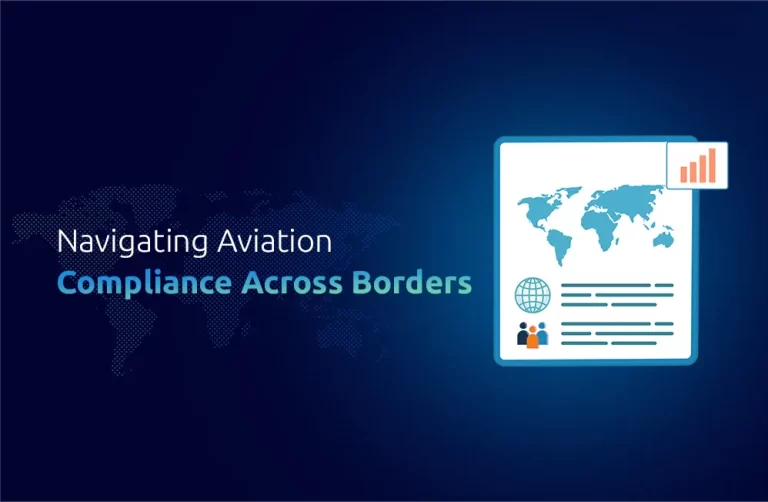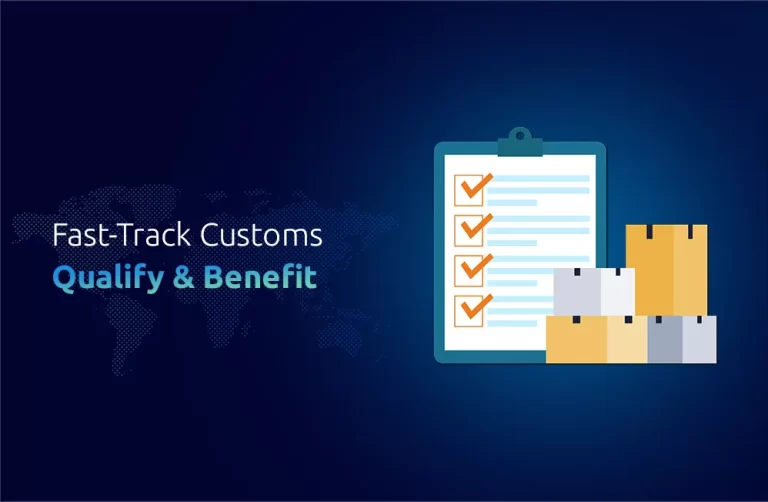Insight
Lithium-ion batteries power aviation, automobiles, IT/data centres and medical equipment. Such import restrictions for these batteries significantly impact global IT supply chain operations that affect producers, manufacturers and suppliers, leading to the end users receiving their products. Being aware of these constraints, as well as their effects, is a fundamental requirement for firms operating in these commercial sectors.
Understanding Lithium Battery Import Restrictions
Due to safety concerns, the market operates under tight import laws that restrict the allocation of lithium-ion batteries, which are frequently employed in various applications. Each nation has distinct regulations about importing lithium-ion batteries along with the following requirements:
Specific requirements exist for certifying lithium batteries to ensure compliance with safety performance levels in different countries.
The regulations establish the maximum number of batteries that can be entered per specific period.
Companies need to follow packaging and labeling guidelines with strict requirements that prevent accidents during shipment.
Importing any lithium battery receives no approval in several countries because these batteries do not satisfy international safety standards or possess safety inadequacies.
Impact on the Global IT Supply Chain
The limitation of lithium battery imports substantially affects the world IT supply chain, affecting industries that depend on powered battery equipment. Manufacturers dealing with aviation, automobile, IT/data center, and medical equipment would experience delays in production and delivery because of challenges securing lithium batteries. The assembly process stops while launch dates get delayed, producing supply chain disruption.
Costs will increase for businesses that need to find different suppliers and transport routes to work around lithium battery restrictions while their budgets extend thinner and operations become less profitable. Businesses face challenges due to different import regulations because they must invest resources to comply with multiple certifications, labeling, and packaging regulations. The distribution of resources away from essential business responsibilities occurs when these requirements take effect. The restricted market access for products that require lithium batteries hampers global business expansion because of import limitations into certain locations, resulting in reduced opportunity for market competitiveness.
Strategies to Mitigate Impact
Multiple business mitigation strategies exist to handle the barriers imposed by lithium battery import regulations.
Business operations should actively track import regulations throughout all their operating locations. A compliance team implemented with customs experts should work together to maintain current knowledge.
Different suppliers throughout multiple geographic areas must be engaged in supply chains to decrease reliance on one sole supply source. A diverse supply chain structure offers backup solutions to unexpected restrictions and interruptions.
Compliance processes need strong programs to guarantee products meet their necessary standards. Training programs and quality assurance procedures comprise a complete approach for this method.
An alliance with logistics professionals who comprehend international regulations leads to simpler import management through their expertise. Under their guidance, businesses can successfully handle complex requirements while preventing potential risks.
Industry associations and policymakers require advocacy efforts from you to standardize import regulations. Group collaboration generates trade policies that become more foreseeable and beneficial for all members.
Conclusion
Lithium battery import restrictions generate major obstacles that impact the worldwide information technology supply chain and industries that operate on battery-operated equipment. Businesses can reduce these obstacles by maintaining knowledge of current regulations, creating diverse supply chains and improved compliance systems, seeking logistics expertise, and supporting regulatory changes. The team at One Union Solutions makes a dedicated effort to lead businesses through evolving import regulations, thus enabling uninterrupted operations.
Did You Know?
According to a report by the Center for Strategic and International Studies (CSIS), the lithium-ion battery supply chain is highly dispersed, with crucial inputs and processing capabilities centralized in a few countries.
FAQs
1. What rules exist for importing lithium battery products?
Ans: The import of lithium batteries faces regulations from different countries which seek to limit battery entry. When importing lithium batteries, governments establish a range of rules, including mandatory certification procedures, product quantity restrictions, specific packaging rules, labelling standards, and total import bans for safety reasons and national standard requirements.
2. Implementing import restrictions creates what impact on Information Technology supply chain operations?
Ans: Network disruptions resulting from import restrictions create additional expenses for companies dealing with lithium battery products. In contrast, companies face difficulties with compliance and reduced market entry for such products, which produces production delays and decreased profitability.
3. What methods do companies need to implement to reduce the consequences of import limitations?
Ans: Businesses can use regulatory information updates, supply chain diversity, and improved compliance procedures to work with logistics professionals while supporting policy change efforts to succeed with import restrictions.
4. What Conditions Reveal the Supply Chain’s Susceptibility to Disruptions in the Lithium-Ion Battery Industry?
Ans: Business operations are at risk because their supply chain extends throughout multiple countries but maintains vital resources and processing facilities in limited geographic areas. The equilibrium of lithium-ion battery supply networks remains fragile because of political conflicts, commerce rules, and export enforcement actions.
5. How does One Union Solutions actively support businesses when dealing with import restrictions?
Ans: One Union Solutions assists businesses by helping them follow complex import rules and offering logistics management services while maintaining compliance for uninterrupted lithium battery import operations.

